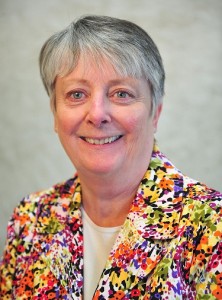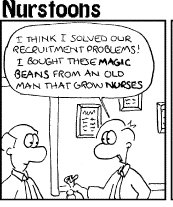
Montana State Rep. Kathy Swanson, Sponsor of HB 269
Reports and surveys by the American Nurses Association, the Emergency Nurses Association and the Bureau of Labor Statistics indicate that workplace violence is widespread in the healthcare sector. In an attempt to address the problem, thirty-eight state legislatures have enacted laws that enhance criminal charges and penalties for those who assault nurses and other healthcare workers. These are similar to the criminal statutes that exist in nearly every state that provide for enhanced penalties for those who assault police officers and other public servants. Yet there are still a dozen states that don’t have such laws to protect healthcare workers. In some of those states there are enhanced penalties for assaults against sports officials (such as baseball umpires and basketball referees) but no enhanced penalties for assaulting a nurse, doctor or other healthcare worker. One state that has yet to enact a law to deter workplace violence against healthcare workers is Montana.
Last December, the Montana Nurses Association and Montana State House Representative Kathy Swanson decided to change that with the introduction of Montana House Bill No. 269 (“An Act Creating The Offense Of Assault On A Health Care Provider Or Emergency Responder; And Providing Penalties”).
In a letter to the editor published yesterday, Don Judge from the Montana Nurses Association reiterated some of the reasons for the legislation:
HB 269 is simply a law designed to protect healthcare workers from vicious assault in their workplace. According to the U.S. Department of Justice, over 500,000 nurses are violently assaulted in their workplace every year! Workplace violence against healthcare workers ranks no. 1 with over 50 percent of all workplace assaults occurring in healthcare situations. This situation is especially bad in Emergency Rooms where fully 54.8 percent of nurses surveyed reported being assaulted at work in the last seven days.
Montana is not immune from such assaults, at least three nurses in our state received injuries from workplace assaults last year which will likely prevent them from ever returning to their chosen occupation. HB 269 recognizes this problem and creates a separate offence of assaulting a healthcare worker.
A hearing on the bill was held on January 31, 2013. There were a number of objections to the bill by the American Civil Liberties Union and advocates for the disabled and mentally ill. On February 7, 2013, the bill was tabled by the Judiciary Committee of the Montana House of Representatives. It is likely to be reintroduced with amendments to satisfy some of the concerns raised.
Here are some video excerpts from the hearing:
Kathy Swanson introduces Montana HB 269
Montana nurse Rebecca Sturdevant on Montana HB 269
Nurses speak out in support of Montana HB 269
Make sure you don’t miss out on the latest nursing news and important announcements: Follow us on Twitter or like the Ultimate Nurse page on Facebook.

